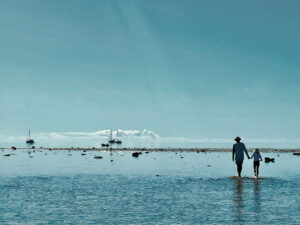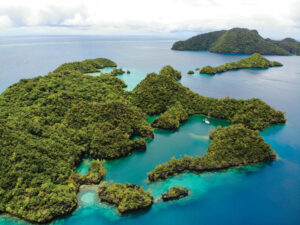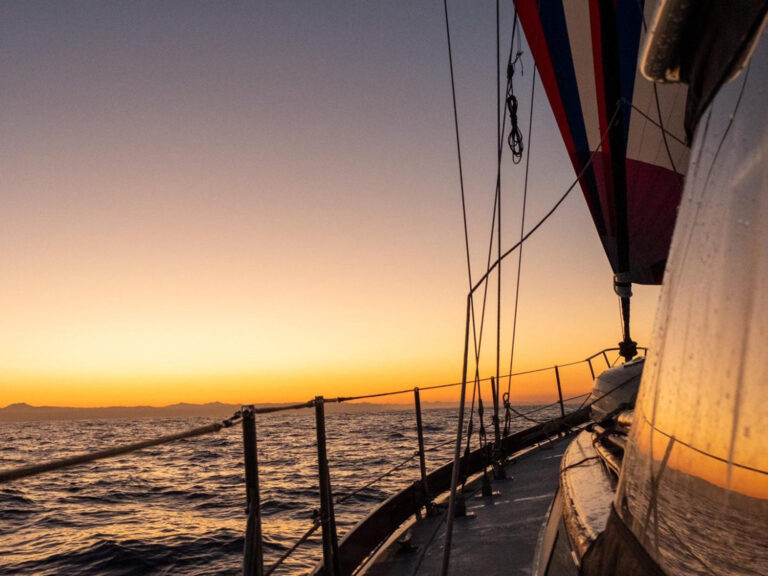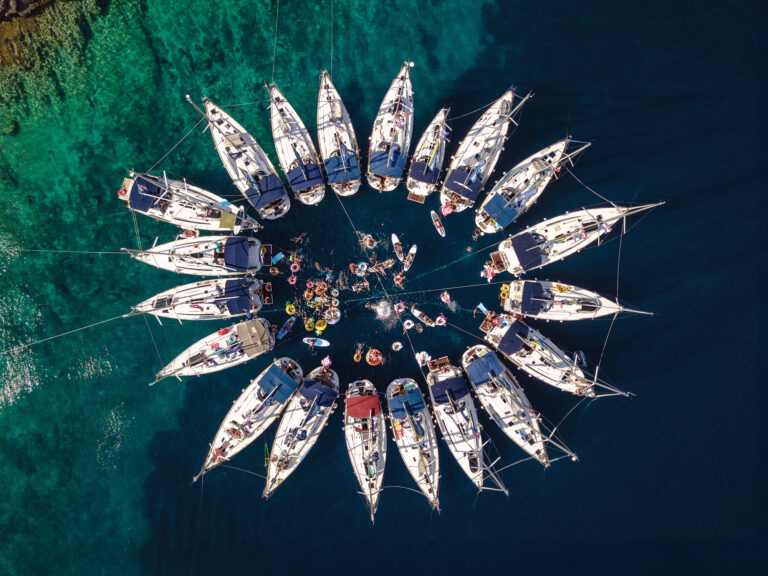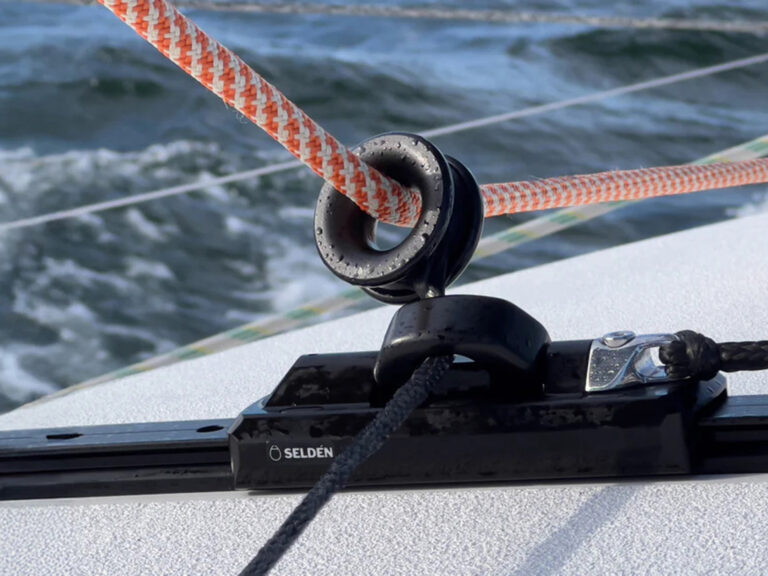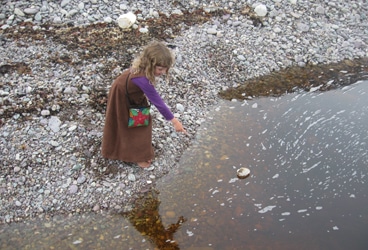
It was our first stop after leaving St John’s—a small, crowded harbor, very busy, and full of a most pungent aroma from several quayside fish plants. In the usual Newfoundland way, we tied up to the first available berth among the shrimpers and longliners and had a look around. It is not an attractive harbor visually, since the wharf is shocking dirty and the water thick with fish gurry, but it’s the only harbor for miles along that coast, and welcome enough after a white-knuckle, double-reefed sail past Cape Francis (“She’s always blowing at Cape Francis,” a fisherman told me the next day. “Even if she’s not blowing anywhere else, ther’ll be wind there”). Some other sailors evidently thought the harbor sufficient as well, since four other sailboats came in after we did: the most we’d seen in one place since leaving Sydney. There’s no room to anchor in the basin; if there’s not an open spot, everyone starts rafting up. It’s expected.
It was Saturday when we arrived, so the harbor supervisor’s inner office was locked up. The building was open, though, and what a surprise to find clean showers and coin-op laundry machines inside. It was well-nigh impossible to keep the girls clean returning from the showers to the boat, since there was a greasy brown stream of melting fish ice to jump cross, all sorts of shrimp carcasses to pick up, and endless patches of grease and machine oil all over the quays. As it was, we had to fill a tub with water and wash their bare feet before allowing them back on deck.
“Why is this place called “Old Perlican?” I asked the girls at the convenience store nearby where I was buying quarters for the laundry.
“So you can tells it apart from New Perlican, just down the way there.”
“Ah.” Should have been obvious. “But what is a ‘Perlican’?”
The girls exchanged puzzled looks. “Well….and isn’t that some sort of bird now?”
“There’s pelicans,” I put in helpfully, “But they’re not spelled with an ‘r’. And there’s none this far north,”
“That’s the one!” They agreed. “It must have just got spelled wrong, a long time back, and stayed that way.”
I could well believe that, having seen how the hand-written notices in the bathroom were spelled. It’s part of the charm of cruising these waters—the easygoing simplicity of the people you meet. What they may lack in the finer points of higher education, though, the Newfoundlanders make up for in bigness of heart. No sooner did some ladies in Cape Broyle whom Danielle was talking to discover that she was longing for fresh vegetables than they brought back two big bags of greens from their garden, as well as a tub of strawberries. Soon after a fisherman handed over a whole stack of grubby charts, much-needed and very welcome indeed. In St John’s I had been given a ride to wherever it was I needed to go without having to ask. At Old Perlican some lovely cod filets had come our way, and a car carelessly offered (“We’re off to Prince Edward Island to fish. The keys’ll be in the truck there if you need to drive her anywhere”).
I’m not saying there’s not been generous folk everywhere we’ve been, but in Newfoundland they’ve taken it to new heights, and so far the goodness has been unmixed with all the chicanery that’s to be found in greater measure elsewhere. It’s necessary, in Central America and the Caribbean, to be ‘Streetwise’; to be watchful lest an invitation or friendly offer of help have an ulterior motive hidden underneath. It’s wise down there to assume that accepting an offer to bring your empty fuel jugs back full will be the last you see of them, and unthinkable to tie up to any wharf that’s not protected by either an armed guard or a locked gate. They’ve learned well from the timeshare salesmen who bribe you with a free breakfast or set of Tupperware to listen to their spiel, and it has the sad effect of making you leery of people who truly just want to be nice because that’s the way they are.
But there are no timeshare salesmen in Newfoundland, and it seems that everyone here will give you whatever they think you need the minute they realize it. And perhaps that’s why they all seem so well off—not because there’s money in seafood, or oil exploration, or nickel mining, but because when you freely give away what things you have, you’ll find you always have enough left over. I may spell better than some of the people here, but they’re teaching me something far better every day—something I know in my head, but put into practice far less than I should: that a kind and generous heart trumps all the booklearning in the world; that the greatest treasure is that which is given away. It may be the simplest things, like a jar of caribou meat or some ancient surplus charts, but to those in need of them they mean the world. Even if this were not some of the most lovely scenery we’ve ever sailed in, all giant cliffs and gorgeous green hills and waters crawling with whales, it would still be the loveliest people we’ve ever sailed among. And to have both those things together is worth a little gurry on the lines and footprints on the decks.
We are the Zartman family: Ben & Danielle, and our three girls, Antigone, Emily and Damaris. We created this blog to chronicle our sailing adventures on Ganymede, a home-finished 31-foot gaff-rigged cutter, which has been our home since 2009, when we sailed from San Francisco, California, to the Sea of Cortez, then down along the Central American coast. Currently in Newport, Rhode Island, we plan to sail to Canada, the U.K., and beyond this summer.

